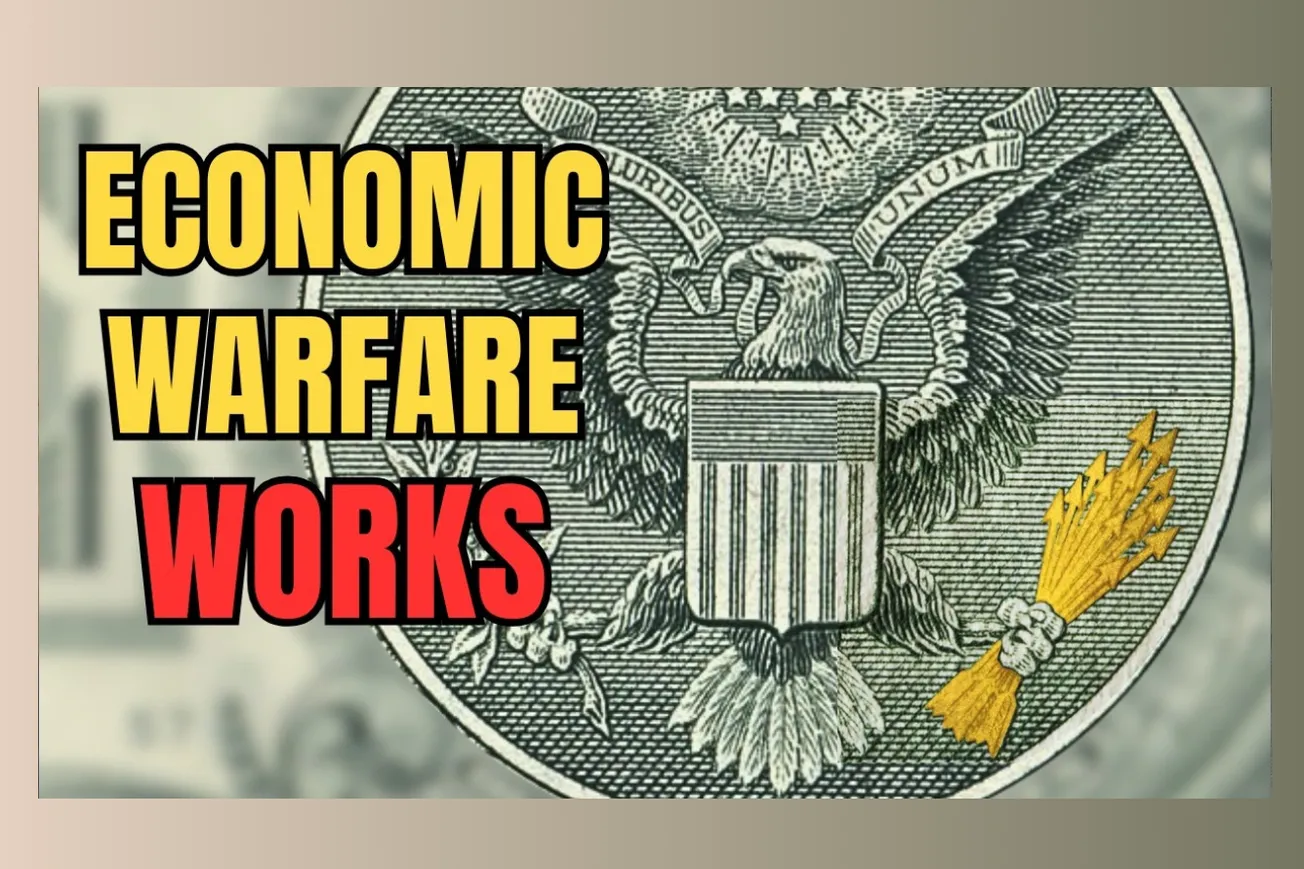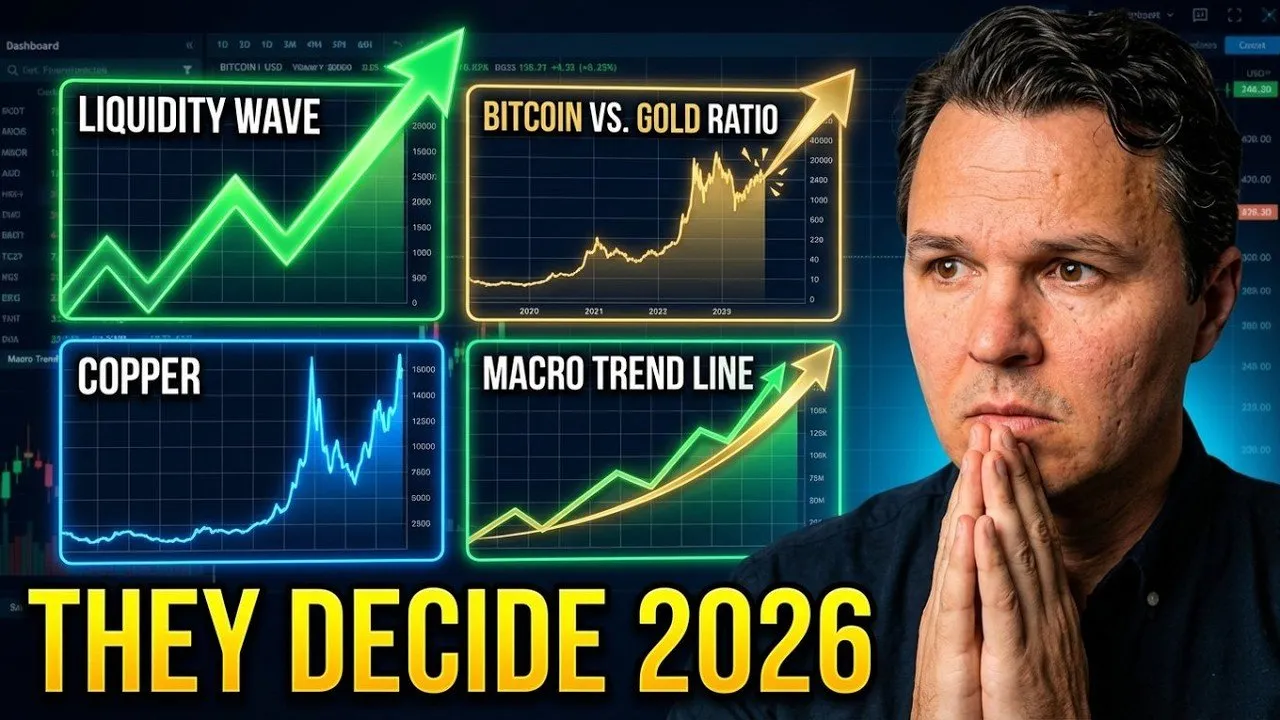Table of Contents
The dream of economic war, for all its downsides, is that it can be an alternative to a more violent kind of war. But when Putin's tanks rolled into Ukraine in February 2022, that dream collided with a harsh reality: the most powerful economic weapon in history had failed to prevent the largest land war in Europe since World War II.
Key Takeaways
- The U.S. transformed from having limited sanctions tools in 2004 to wielding unprecedented economic power through dollar dominance and financial chokepoints
- Stuart Levey's revolutionary approach to Iran sanctions in 2006 proved economic warfare could achieve what military force couldn't—forcing a nuclear deal without firing a shot
- Obama's cautious response to Russia's 2014 Crimea annexation sent the wrong signal, teaching Putin that economic consequences were manageable
- The 1974 petrodollar agreement between Nixon and Saudi Arabia created the foundation for modern American economic dominance, making oil trading dependent on U.S. dollars
- Biden's administration had months to prepare deterrent sanctions before Russia's 2022 invasion but underestimated the political will for aggressive measures
- Modern economic warfare requires institutional reform—there's no Pentagon equivalent for coordinating sanctions, tariffs, and export controls across government agencies
- The rise of economic warfare reflects a "geoeconomic impossible trinity"—you can only have two of three: economic interdependence, economic security, and geopolitical competition
From Maritime Blockades to Financial Chokepoints
History's greatest strategic chokepoints have always been geographic—narrow straits like the Bosphorus where a few ships could starve entire empires into submission. During the Peloponnesian War, Sparta won by blockading this very waterway, cutting off Athens' grain supply and forcing surrender.
But something remarkable happened in the 1990s. Hyperglobalization created new kinds of chokepoints that existed purely in the realm of finance and economics. The most powerful of all? The U.S. dollar itself.
Here's the thing that's so wild about modern sanctions: where ancient blockades required massive naval fleets stationed at strategic waterways, today the director of OFAC—the Treasury unit that oversees sanctions policy—can sign a few documents in her Washington office and effectively blockade that same Bosphorus. This actually happened on December 5, 2022, when the G7 oil price cap went into effect and dozens of oil tankers backed up at the Turkish strait because maritime officials were terrified of violating the new rules.
What's interesting is how this power developed almost by accident. The dollar's role as the global reserve currency started at Bretton Woods in 1944, but it wasn't until the 1970s that we really saw the weaponization potential emerge. When Nixon took the dollar off the gold standard in 1971, nobody was thinking about sanctions. They were just trying to solve immediate economic problems.
The real breakthrough came from an unlikely source: a chain-smoking former Goldman Sachs bond trader named Bill Simon who became Nixon's Treasury Secretary. Facing massive deficits from the Vietnam War and desperate for solutions, Simon flew to Saudi Arabia in the summer of 1974—getting spectacularly drunk on the flight, according to historical accounts—and cut a deal that would reshape global economics.
The Saudis agreed to price oil in dollars permanently and recycle their petrodollars into U.S. Treasury bonds. In exchange, they got access to American military equipment and the ability to buy U.S. government debt in secret auctions, avoiding political scrutiny back home. This "petrodollar system" largely still exists today, making the dollar essential for global energy transactions regardless of who's buying or selling.
The Stuart Levey Revolution
By 2004, American sanctions policy was in shambles. The most recent major effort—a 13-year embargo against Saddam Hussein's Iraq—had been widely seen as a failure. Despite a multinational naval blockade inspecting every oil ship entering Iraqi ports, Saddam remained defiant while ordinary Iraqis suffered under humanitarian costs. The whole mess had helped justify the 2003 invasion.
George W. Bush captured the mood perfectly when he complained that America had "sanctioned ourselves out of any influence" when it came to Iran's nuclear program. Primary sanctions—the traditional embargo approach where U.S. companies simply couldn't trade with Iran—had been maxed out since the mid-1990s. There was virtually no American-Iranian trade left to cut off.
Enter Stuart Levey, the Treasury Department's first Under Secretary for Terrorism and Financial Intelligence. What Levey realized during a January 2006 trip to Bahrain was that he'd been thinking about the problem all wrong. The goal wasn't to get other countries to impose their own sanctions on Iran—traditional diplomatic arm-twisting that rarely worked. Instead, he could use access to the dollar as leverage to pressure foreign banks directly.
The light bulb moment was brilliant in its simplicity. Levey didn't need to convince France or Germany to sanction Iran. He just needed to convince French and German bank CEOs that doing business with Iran would cost them access to the American financial system. When the choice was between Iran and the U.S. dollar, it wasn't really a choice at all for most banks.
Levey got incredibly lucky with timing. Hank Paulson, the former Goldman Sachs CEO, had just become Treasury Secretary and had relationships with virtually every major banking CEO worldwide. Paulson opened doors, and Levey walked through them carrying declassified intelligence showing exactly how Iran was using foreign banks to fund its nuclear program and terrorist proxies like Hamas and Hezbollah.
What followed was the most successful sanctions campaign in modern history. Between 2006 and 2010, Levey convinced virtually every major global bank to exit Iran through pure persuasion and reputational pressure. When that wasn't enough, Congress stepped in with mandatory secondary sanctions—laws requiring the Obama Administration to punish Iran's business partners, not just Iran itself.
The enforcement mechanism that made it all work was genuinely terrifying from a banking perspective. When Standard Chartered, HSBC, and BNP Paribas got caught violating Iran sanctions, they faced fines of $1 billion, $2 billion, and $9 billion respectively. But more importantly, the New York Department of Financial Services threatened to revoke their banking licenses entirely—essentially a corporate death sentence for institutions that needed to operate in the U.S. market.
The Iran Nuclear Deal: Economic Warfare's Greatest Success
The real masterstroke came with oil sanctions in 2012. Congress, frustrated with Obama's diplomatic approach, essentially forced his hand by threatening to sanction Iran's Central Bank—the repository for all the country's oil revenues. Obama was terrified this would take Iranian oil off the market overnight, causing oil prices to spike globally.
The compromise they reached was genius. Countries could still buy Iranian oil, but only if they reduced purchases by a significant amount every six months. Payments had to go into escrow accounts that could only be used for bilateral trade between Iran and the purchasing country. So if China bought Iranian oil, the money stayed trapped in China and could only be spent on Chinese goods.
This created incredible incentives for compliance. Chinese entities actually benefited from the arrangement because it guaranteed a captive market for Chinese exports to Iran. Within 18 months, Iran's oil sales collapsed by 60% and about $100 billion of Iranian oil money got trapped in overseas escrow accounts. The Iranian economy went into freefall.
The political impact was immediate. Hassan Rouhani won the 2013 Iranian presidential election on an explicit platform of getting sanctions lifted. By 2015, Iran was ready to negotiate seriously on its nuclear program. The Joint Comprehensive Plan of Action (JCPOA) represented the high point of American economic warfare—achieving a peaceful resolution to a nuclear crisis without firing a shot.
Both Democrats and Republicans claimed credit. Democrats said sanctions were the key to getting the deal. Republicans argued sanctions were working so well that keeping them longer would have yielded an even better agreement. Either way, the consensus had flipped completely. Sanctions went from being seen as useless to being viewed as a magic bullet that ended Iran's nuclear program.
The Russian Invasion of Crimea: A Missed Opportunity
Interestingly, the original Iran nuclear deal freezing the program was signed on November 24, 2013—the exact same day that hundreds of thousands of protesters first descended on the Maidan in Ukraine to protest Viktor Yanukovych's deal with Putin. The timing matters because Obama officials were fresh off this massive sanctions victory when Putin's "little green men" appeared in Crimea.
Here's the tragedy: Obama's team naturally thought, "Well, sanctions just worked incredibly well against Iran, so maybe they could work against Russia too." But Russia in 2014 was a much harder target. It was the world's eighth-largest economy and largest fossil fuel exporter. Europe depended completely on Russian natural gas. And Putin was creating facts on the ground while the U.S. scrambled to respond.
The initial sanctions were weak—mostly individual sanctions on Putin's judo partners and childhood friends who'd been elevated to powerful positions. Obama and European leaders threatened tougher "sectoral sanctions" cutting off major Russian companies from Western capital markets, but they spent months negotiating what they eventually called "scalpel-like" measures.
What's remarkable is that Obama actually went ahead with these sectoral sanctions on July 16, 2014—the day before Malaysia Airlines Flight 17 was shot down over eastern Ukraine. The New York Times headlines were all about transatlantic divisions and whether the sanctions would even work. Banking CEOs complained it would just drive business to European competitors.
Then Putin's proxies shot down that commercial airliner, killing almost 300 people, mostly Dutch civilians. The political climate in Europe shifted overnight. Suddenly Europeans weren't just willing to match American sanctions—they wanted to go beyond them, cutting off all Russian state-owned banks from European financial systems.
The core sectoral sanctions were implemented between July and September 2014, when Russian and Ukrainian leaders agreed to the first Minsk ceasefire. But there's an important detail most people miss: even though these sanctions were supposedly "scalpel-like," oil prices crashed that winter from over $100 per barrel to around $50. Combined with the capital market restrictions, Russia's economy looked like it was about to collapse—just as bad as it would look after the much harsher 2022 sanctions.
Obama's Cautious Approach and Its Consequences
Here's where the story gets frustrating if you're thinking about deterrence. European leaders looked at Russia's economic freefall and got spooked. French President François Hollande explicitly said they didn't want to "push Russia to its knees." There was a frantic desire to get a more permanent agreement, which became Minsk 2 in February 2015.
Obama's approach reflected two key constraints. First, genuine fear about financial contagion—the 2008 crisis was still fresh, and the Eurozone crisis was ongoing. Treasury worried that Russian gas cutoffs could accelerate a European financial crisis that would spread to the U.S. Second, Obama was extremely deferential to European leadership on Ukraine, wanting Angela Merkel and others to take the lead since it was "in Europe's backyard."
The result was that Russia essentially got away with annexing Crimea at manageable cost. After February 2015, Obama took his foot off the gas on sanctions. When Russia interfered in the 2016 election—something Obama had explicitly threatened harsh sanctions over—the actual penalties imposed in December 2016 were minor. Then Trump spent four years doing essentially nothing on Russia sanctions.
From Putin's perspective, the lesson was clear: the West didn't have the stomach for real economic war. Europe was even worse than the U.S.—after annexing Crimea, a consortium of companies signed the Nord Stream 2 pipeline deal to double Russian gas imports to Europe. Is it any wonder Putin calculated he could get away with a full invasion?
The 2022 Invasion: Too Little, Too Late
When Biden took office, there was real debate about how to handle Russia's accumulated misdeeds. Biden himself had been the most hawkish member of Obama's team on Russia, always favoring tougher sanctions and military aid to Ukraine. But facing COVID recovery, climate change, and rising China tensions, the administration tried to establish what they called a "stable and predictable relationship" with Russia.
They imposed modest sanctions in April 2021 to address past grievances, then tried to move on. Putin responded by writing a 5,000-word essay about why Ukraine wasn't a real country and should be part of Russia, then massing over 100,000 troops on Ukraine's border.
The intelligence success that followed was remarkable—probably the biggest of the 21st century. The U.S. intelligence community figured out Putin's invasion plans with incredible precision. Biden started warning allies privately in September and October 2021, then went public with warnings to try using deterrent threats of "swift and severe consequences."
Deputy National Security Adviser Daleep Singh, who'd played a key role in 2014, built relationships with G7 counterparts to prepare sanctions packages. They explicitly wanted the preparations to be detected by Russian intelligence to make the deterrent threat more credible. By late February 2022, they had extensive menus ready—most importantly, a "day zero" package of sanctions that would activate immediately upon invasion.
The compromise they reached was telling: maximum sanctions on Russian banks and technology, but explicitly avoiding aggressive targeting of oil sales because inflation was at 40-year highs and they feared oil price spikes. So the day zero package hit Sberbank and VTB (Russia's two biggest banks) and applied export controls to the entire Russian economy, but left energy largely untouched.
When the Overton Window Shifted
What happened next reveals how much the political appetite for sanctions depends on visible atrocities. Putin invaded, and within 24 hours, the carefully prepared day zero package looked pathetically weak. Hundreds of thousands of protesters filled European streets. The political will for much tougher sanctions exploded overnight.
Within the first weekend of the war, the U.S. and G7 agreed to sanction Russia's Central Bank directly—something considered too radical to even discuss in the lead-up to invasion. Putin had clearly expected more "gentlemanly" behavior and left half of Russia's central bank reserves completely exposed to Western seizure.
The irony is thick: Putin expected the West to be more concerned about the stability of the international financial system. Once the Overton window shifted and atrocities became visible, previous red lines disappeared. But by then, it was too late for deterrence.
The China Challenge and Export Controls
One fascinating subplot involves China policy and the bureaucratic randomness that shapes economic warfare. During Trump's first term, there was serious discussion about sanctioning Huawei—putting the Chinese tech giant on Treasury's sanctions list. But Treasury Secretary Steven Mnuchin opposed tough China policies, so sanctions were off the table.
The alternative was export controls through the Commerce Department, which Wilbur Ross controlled. This led to the "foreign direct product rule" against Huawei in 2020—requiring any company using American technology in their supply chain to get U.S. permission before selling to the Chinese company. It was a novel approach that later got applied to Russia's entire economy in 2022.
The contrast with banking enforcement is stark. Treasury threw billion-dollar fines at HSBC, Standard Chartered, and BNP Paribas for sanctions violations, threatening to revoke banking licenses entirely. Commerce hasn't shown the same enforcement teeth with export control violations, partly because they'd be targeting American tech companies that contribute to national competitiveness rather than foreign banks.
This gets to a core political economy point: it's much easier to threaten foreign institutions than domestic ones. Telling a French bank it'll lose access to the New York Federal Reserve is different from threatening Nvidia or other crucial American companies.
The Institutional Challenge
Here's what struck me most about this history: we're fighting 21st-century economic wars with 20th-century institutions. There's nothing like the Pentagon for economic warfare—no clear chain of command, no single agency in charge. When cabinet-level officials disagree and there's no presidential directive, things just don't happen or take forever.
A perfect example: after Russia's invasion, it took a call from former European Central Bank chief Mario Draghi to Treasury Secretary Janet Yellen to convince her that sanctioning Russia's Central Bank was okay. That's not a normal decision-making process for wartime.
The bureaucratic fragmentation is incredible. Treasury handles financial sanctions, Commerce does export controls, State manages diplomacy, Energy oversees petroleum reserves, and the National Economic Council tries to coordinate. Meanwhile, Congress passes mandatory sanctions laws when they don't trust executive branch toughness, but those same laws often handcuff officials who want flexibility.
Compare this to military force, where despite inter-service rivalries, there's ultimately one Secretary of Defense and clear command authority. For economic warfare, you have multiple cabinet secretaries with their own equities and no clear hierarchy for resolving disputes.
The Geoeconomic Impossible Trinity
Looking at the broader picture, there's a structural reason why economic warfare has exploded in the 21st century. Obama used sanctions twice as much as Bush, Trump twice as much as Obama, and Biden twice as much as Trump. That's not just about individuals—there are deeper forces at work.
The pattern reflects what I think of as a "geoeconomic impossible trinity": you can only have two of three things simultaneously—economic interdependence, economic security, and geopolitical competition.
During the Cold War, we had economic security and geopolitical competition but no meaningful economic interdependence with the Soviet Union. There was no trade to weaponize, so you could compete geopolitically without losing economic security.
After the Cold War, geopolitical competition temporarily disappeared. China and Russia weren't adversaries—we spent enormous political capital bringing both into the WTO and liberal international order. With no geopolitical competition, we could embrace massive economic interdependence without losing our sense of economic security.
But today we have economic interdependence and renewed geopolitical competition, which means we've lost economic security. None of the great powers feel economically secure anymore. Everyone's investing heavily to insulate themselves from rivals' sanctions, export controls, and tariffs.
The Dark Conclusion
This creates a genuinely frightening dynamic. To regain economic security, we either need to end geopolitical competition (not happening anytime soon) or significantly roll back economic interdependence. The direction of travel clearly points toward a much less interdependent global economy.
But there are two ways this could unfold. The optimistic version is "friend-shoring"—deeper economic ties with allies, weaker ones with adversaries. Think of a democratic bloc with low internal tariffs but high external barriers, as Bob Lighthizer recently proposed in the New York Times.
The pessimistic version is chaotic breakdown where we deploy sanctions, tariffs, and export controls arbitrarily against friends and foes alike. Instead of strategic decoupling, we get forced autarky by default—no long-term economic agreements with anybody.
History suggests the pessimistic scenario could be catastrophic. When states can't secure resources and markets through free trade, the temptation for conquest and imperialism rises dramatically. Hitler's pursuit of Lebensraum was partly motivated by fears of being cut off from European trade after sanctions were imposed on Mussolini for seizing Abyssinia.
Hearing President Trump talk about seizing Greenland for its mineral resources evokes uncomfortable historical parallels. That's the kind of thinking that emerges when leaders believe they might be economically isolated and need to secure resources through force rather than trade.
Writing History in Real Time
One final observation about documenting this history: so many crucial decisions today happen outside formal channels—in coffee shops, WhatsApp groups, informal conversations that never get written down. The documentary record that future historians will rely on may be misleading because it often doesn't reflect how decisions actually get made.
This makes contemporary history more important than ever. What you lose in documentary access, you gain by being able to talk to people who were actually in the rooms where it happened. The challenge is maintaining rigorous chronology—understanding what decision-makers knew at the time rather than imposing hindsight knowledge.
The human element matters enormously in this story. Take Stuart Levey out of Treasury in 2006, or Daleep Singh out of the NSC in 2022, or Matt Pottinger out of China policy during Trump's term, and you get very different outcomes. Individual civil servants with the right expertise in the right place at the right time can reshape history.
But they need institutional support to succeed. The lesson isn't just that people matter—it's that we need better institutions for economic warfare and more people with diverse skill sets willing to devote their lives to public service.
The dream of economic war, for all its downsides, is that it can be an alternative to more violent conflict. Someday the age of economic warfare might end, but we might miss it when it's gone. The alternative could be much worse.
Looking Ahead: The Future of Economic Warfare
The history of sanctions from Iran to Ukraine reveals both the incredible potential and fundamental limitations of economic power as a tool of statecraft. We've learned that financial chokepoints can freeze nuclear programs and collapse economies, but they can't always prevent determined autocrats from choosing war over prosperity. As great power competition intensifies and economic interdependence fragments, the choices made in Washington, Brussels, and Beijing over the next decade will determine whether we move toward strategic friend-shoring or chaotic economic nationalism—and whether future conflicts get resolved through financial pressure or military force.
What to Expect in the Coming Decade
- Dollar dominance will face serious challenges as China, Russia, and other countries accelerate efforts to build alternative payment systems and reduce dependence on U.S. financial infrastructure
- Friend-shoring will accelerate with democratic allies creating preferential trade blocs while maintaining high barriers against authoritarian competitors like China and Russia
- Export controls will become the new sanctions as governments prioritize cutting off technology access over financial pressure, especially in semiconductor, AI, and quantum computing sectors
- Institutional reform will lag behind needs with economic warfare continuing to suffer from bureaucratic fragmentation while military coordination remains superior
- Energy transitions will reshape leverage as renewable energy adoption reduces the power of oil-producing authoritarian states while creating new dependencies on critical mineral suppliers
- Congressional mandates will proliferate as lawmakers lose faith in executive branch restraint and pass increasingly harsh automatic sanctions triggers
- Enforcement will become more aggressive with billion-dollar fines and license revocations becoming standard tools to ensure private sector compliance with economic warfare objectives
- Regional economic blocs will emerge potentially splitting the global economy into competing spheres rather than maintaining current levels of interdependence
- Economic security will trump efficiency as countries prioritize supply chain resilience over cost optimization, even in peacetime
- The next major crisis will test whether economic pressure can still deter military action or whether we've entered an era where determined autocrats simply accept economic isolation as the price of territorial expansion





![This New Bitget Platform Changes the Game [Literally Gold]](/content/images/size/w1304/format/webp/2026/02/bitget-launches-universal-exchange-gold-usdt.jpg)